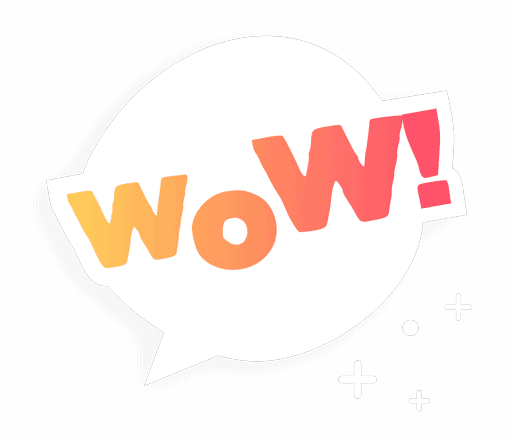WoW! News – Podcast Transcript – April 19, 2020
HELLO and welcome to WoW!, the positive podcast, showing kids that there’s a lot more to world news than bad news.
I’m Alastair. As a journalist, I spent years bringing people bad news from all over the world. Now I realise that if we’re really going to fix our problems, we need a bit of hope and inspiration too. And so I get together with my podcast buddy Clarisse to talk about what people are already doing to come up with solutions.
So if you want to cheer up a friend, do send them a link to this, WoW! News, the positive podcast and check out our website wow dash news dot eu.
MUSIC
A – Hello, Clarisse. How are you doing ?
C – Hi, Alastair. I’m fine thanks. Of course, I’m still staying at home because of corona virus. I’ve got plenty of time to think!
A – Ah, yes. Thinking is a good way to use our time at home, isn’t it? I’ve been listening to someone who says we should use this quiet time confined indoors to think big thoughts about our planet as a whole – and to think about how we can all make a difference to looking after it better when all this is over.
C – Ah. You know sometimes it’s hard to remember that there’s a whole world out there beyond our own home!
A – Indeed. But it’s still there. And this week we’ll be celebrating Earth Day. That’s normally when people meet up and share ideas about looking after our planet. But of course this year, Earth Day will be mostly online. One thing some of you might be able to do is to watch a new film on TV about the famous scientist Jane Goodall.
C – Jane Goodall? The lady who lived with the chimpanzees?
A – That’s the one! So, Jane Goodall has been telling us amazing new things about Nature for a VERY long time. Sixty years ago, she went to live with chimpanzees in Africa. What she discovered about them helped change the way we think of ourselves and animals.
C – Really? So what did she find out?
A – She realized that chimpanzees, who are of course our very very close cousins – we share 99 percent of the same genes – didn’t just look a little bit like small, hairy people – they have fingers and thumbs, eyes in the front and ears on the side of their head, no tails. They also seemed to act like us, and even have feelings like us.
C – Feelings?
A – Yes, by living alongside a tribe of chimpanzees, Jane was able to recognize them as individuals with different tempers – she gave them names. And she saw that they played jokes on each other, got angry, frightened, sad. Much like us. And one day, a really important day, she saw one of the chimps, who she called David Greybeard – can you think why?
C – er, he had a grey beard?
A – Got it in one Clarisse! So David Greybeard broke off a twig from a tree. Jane watched him strip the leaves off it. Then he started using it to poke into a nest of insects, a termite mound. He was using it to make the termites come out where he could grab them and eat them.
C – And why was this so important, Alastair?
A – Because until that day, humans all thought that we were totally unique in this way – that we made and used tools. We thought that no other creature on the planet was as smart as our ancestors had been when they started shaping bits of stone and wood to make tools. That, people thought, made us completely different.
Now, suddenly, this young woman – Jane was only 26 at the time – turned up and showed that we weren’t unique. Chimps made tools too. Not very complicated ones. But still, the point is that ever since the day she watched David Greybeard we’ve understood that we humans are not totally separate. We’re part of the animal kingdom and we share more in common with other animals than we had thought.
C – OK! But does that make a real difference to what we do in our daily life?
A – Well, Clarisse, Jane Goodall says that this idea should help us realise that we need to be kinder and show more care towards animals. And to Planet Earth in general. In particular, right now, she’s making a link that some other scientists have between the corona virus that’s messing up all our lives and the way we treat animals and the rest of the natural world.
C – Really. What’s the connection?
A – Well, the link that Jane Goodall starts with the fact that corona virus comes from an animal. It’s causing a big problem for humans because we’d never had to deal with it before until last year this bug jumped from an animal into a person. Now, scientists reckon that lots of diseases in humans have started that way, for thousands of years. But it may be happening more often. And Jane and quite a lot of other scientists say that the way that some people capture animals and treat them badly and eat is a reason for there being more new diseases.
C – Hm. So what should we do about that?
A – Good question. Jane Goodall says the most important thing is for us all to realise that each and every one of us makes a difference. And that we should all have a think about the impact we have on the planet. And think about what we can do, however small it is, that can make a difference.
C – But there are such huge problems, like climate change and pollution – we need to make really big changes, don’t we?
A – One of things I like about what Jane Goodall says is that, yes, the world does need big changes. But if we all think about the big stuff, it’s quite hard to actually see what we can do ourselves. We might feel, oh heavens, it’s all just too much and give up. Jane says the really important thing is to think what can I do, right here, right now. And if we all do that, then, well the big picture will take care of itself.
C – WoW! I like that way of thinking! I think my way of helping the planet at the moment is that I a try do some gardening on my balcony. Spring time ! I’ve planted bee-friendly flowers and aromatic plants like mint, coriander and It’s nice to see and smell, good for our health and a perfect spot for birds to eat.
What about you, Alastair?
A – Ah, well. Hm. What have I been doing. Well of course like everyone else I haven’t been travelling about on trains and buses. And I can see already how much cleaner the air in the city has become. I do walk and go by bike a lot more than I used to. And recently I have made a change in the bathroom that maybe some of our listeners’ dads have done too.
C – Really? What on earth is that, Alastair?
A – Well, every morning when I shave – if I didn’t do that people would be calling me Alastair Greybeard – I used to use a razor made of plastic. And I when it was blunt, about once a week, I would throw it away. So over the years, I’ve added quite a lot of little bits of plastic to the rubbish dumps. So this year, I’m doing my bit to help. I’ve stopped using throwaway plastic razors. Instead I have a steel razor, made in France, that will last a lifetime. Of course, there’s still more I can do.
C – And so what’s next Alastair?
A – Well, that’s what I’m going to use some of this quiet time of staying indoors to think about! We can none of us be perfect immediately. But what Jane is saying is that we just need to think small, start somewhere, do our bit – and the big stuff will be OK.
C – Excellent! I see that on the WoW! website we’ve also got a great idea for people to do at home – at least if they have a garden.
A – Yes, Clarisse, we thought it would be good to show people an idea that comes from Jane Goodall’s organization for children. It’s called Roots&Shoots and they probably have a local website and organisers near where most of our listeners live. They suggest we make a “bug hotel”.
C – That’s a kind of home for insects, right? Isn’t that a bit yeugh?
A – Well, it’s easy to think that we like Nature when we think of cuddly animals. But those creepy crawlies and even microscopic bugs are important parts of our world. We all depend on everything else – look for example at the story we had in WoW! last week about the bug people found that can eat plastic rubbish. Now that’s REALLY useful. So yes, Clarisse, we should help out our insect friends too! The instructions are on the website – wow dash news dot eu -. Although I should say you will need a few more tools than our chimpanzee friend David Greybeard to make the ‘bug hotel’.
C – Ok, Alastair. I’m going to take a look. But I’m not sure it’ll work in my flat here!
A – Ah, that’s true Clarisse. I’m sure you’ll find some other way to help! Take care and we’ll see you next time! Bye!
C – Bye, Alastair!
A – Well that about wraps up our positive podcast for this week. Have fun having a think about what little things we can do to help Nature. Look out for things to do on Earth Day and take a look at ideas from Roots & Shoots. I hope you’ve enjoyed finding out about Jane Goodall, David Greybeard and the other animals. We’ll be back next week with more from WoW! the positive podcast. Until then, stay home, stay safe and …. Keep positive!

